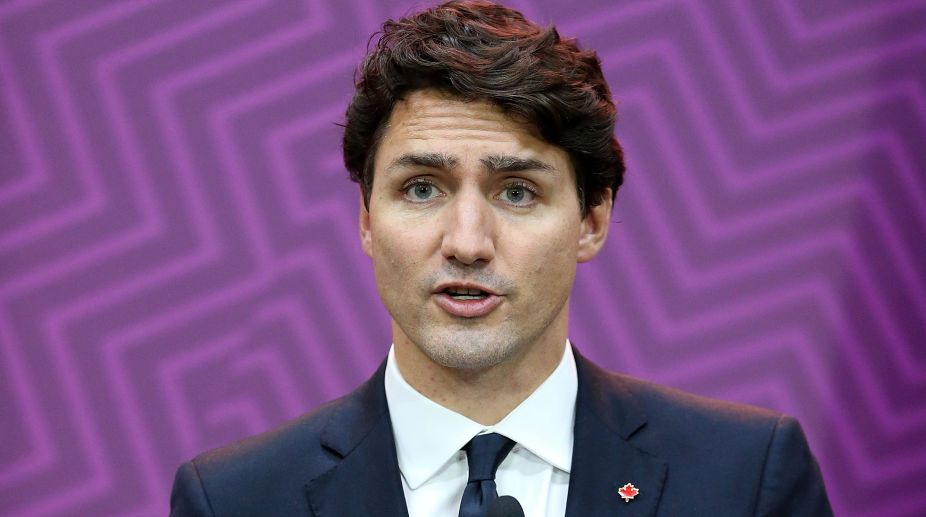Congress Govt in Himachal is going to fall: BJP
Thakur said that the people of the state had given a chance to the Congress government for five years; however the Congressmen themselves have failed to handle their own government.

Canada PM Justin Trudeau (Photo: Facebook)
Canada has sought to put a lid on the recent controversy over Prime Minister Justin Trudeau’s participation at a ‘nagar kirtan’ in Toronto that featured ‘Khalistan’ flags and posters of extremist leader Jarnail Singh Bhindranwale which upset India. It said ties between the two nations were far too resilient to get sidetracked by an event like that.
‘’If you look at these events, you may have one or two demonstrators but there were thousand others who did not have any of those signs or placards of any kind. So, the ‘Khalsa Day’ activities were about celebrating the ‘Khalsa’ foundation, Baisakhi and Sikhism and the vibrant community of Sikhs and our focus is on that,’’ Canadian High Commissioner to India Nadir Patel said. He hastened to add that Canada was not insensitive to such issues.
Stating that Trudeau would visit India late this year or early next year, Patel, in an interview to The Statesman, hailed the ‘significant contribution’ made by the 1.2 million strong Indian diaspora in Canada in strengthening the overall relationship between the two countries.
Advertisement
Asked about another recent incident when Punjab Chief Minister Amarinder Singh refused to meet visiting Canadian Defence Minister Harjit Singh Sajjan, a Sikh, calling him a ‘Khalistan’ sympathiser, he said the CM’s comments were disappointing and inaccurate. ‘’Our Defence minister made it very clear that he doesn’t support the break-up of India. I think this is the best way to articulate the message.’’
He observed that the Punjab CM had had laid out a strong vision for the state and Canada would be happy to help in achieving some of those objectives in areas such as healthcare or education.
Asked for his reaction to concerns raised by India over Pakistan’s continued support to cross-border terrorism in India and Afghanistan, he said, ‘’Canada condemns all forms of terrorism and extremism. We want to see regional security and stability. We have a strong presence in Afghanistan as well and we collaborate with India. We want to see stability in Afghanistan as well.’’
On the bilateral defence relationship, Patel said Ottawa was trying to ramp up defence collaboration as a result of Defence Minister Sajjan’s visit to India. ‘’People don’t realise that Canada is the sixth largest exporter in defence products in the world but the trade in defence between India and Canada is very very small.’’
On the status of the civil nuclear cooperation agreement signed between the two countries in 2010, he said the accord had become fully operational and Canada was now supplying uranium to India. He said Canada also supported India’s bid to join the Nuclear Suppliers’ Group (NSG).
Asked by when a Comprehensive Economic Partnership Agreement (CEPA) was expected to be inked between India and Canada, the envoy said the two countries remain engaged on completing the accord as it would be beneficial for both of them in terms of trade opportunities. He was of the view that the full potential of the India-Canada economic relationship was yet to be exploited. ‘’We have (so far) only scratched the surface of potential.’’
Canada, he said, subscribed to Prime Minister Narendra Modi’s vision of trade liberalisation. ‘’We also see a lot of value in flagship initiatives like Make in India, Digital India, Skill India and Smart Cities and Canada or Canadian companies are very active in these areas.’’
Advertisement